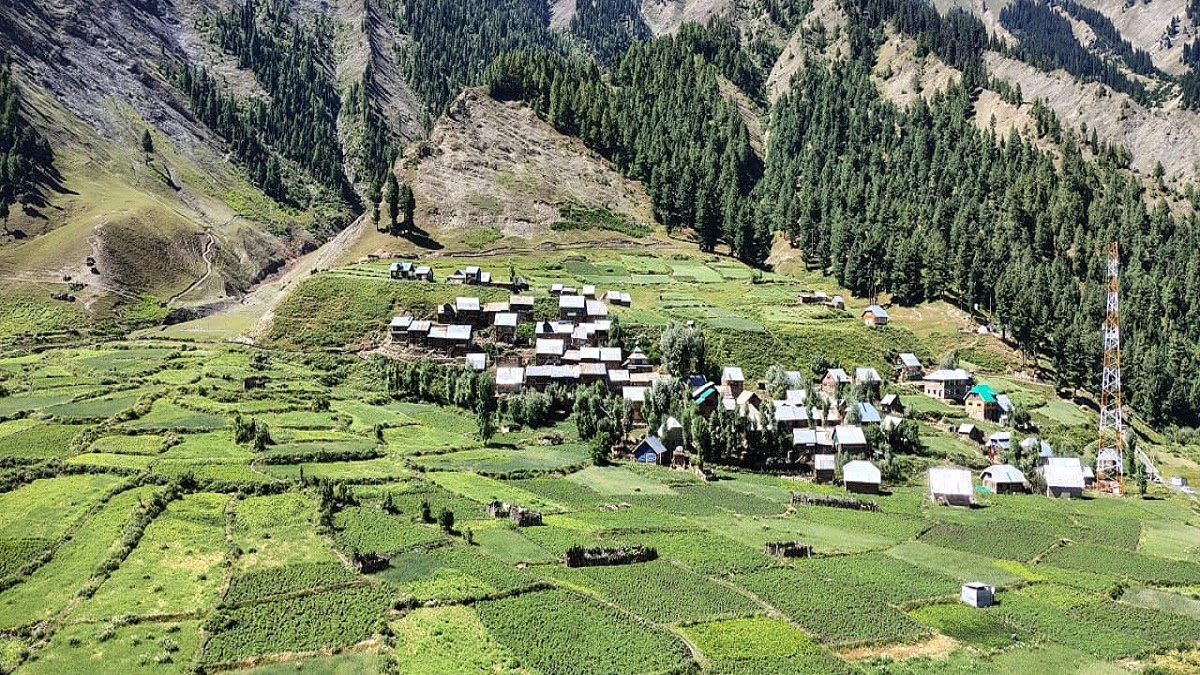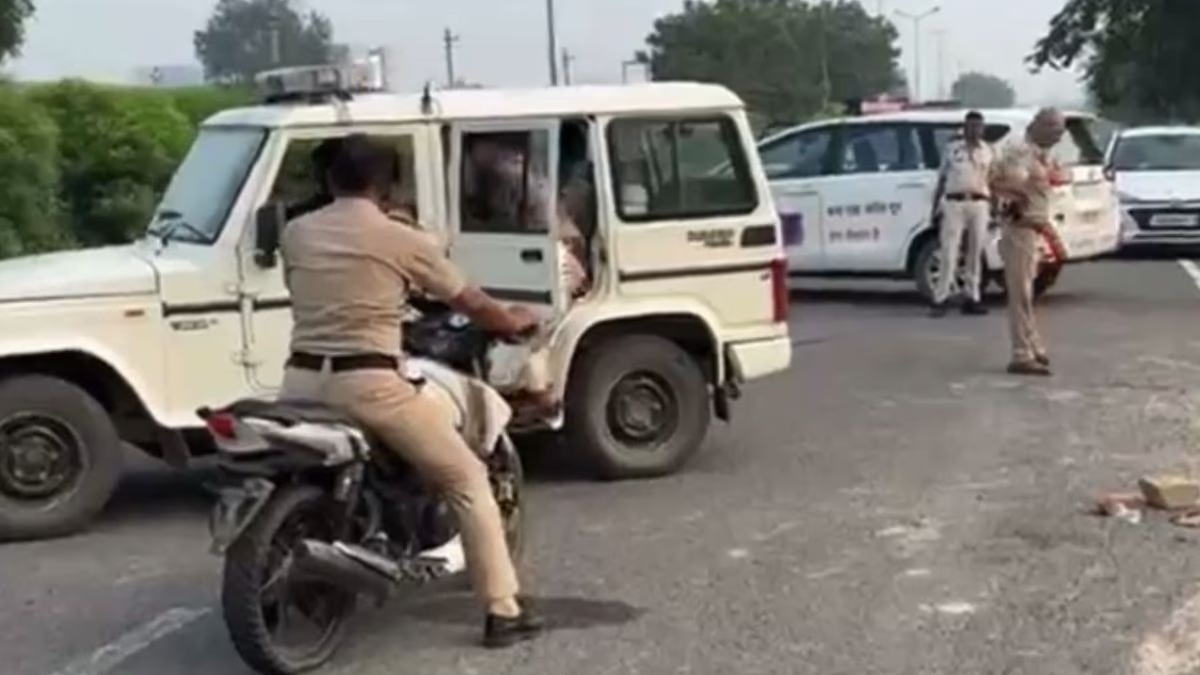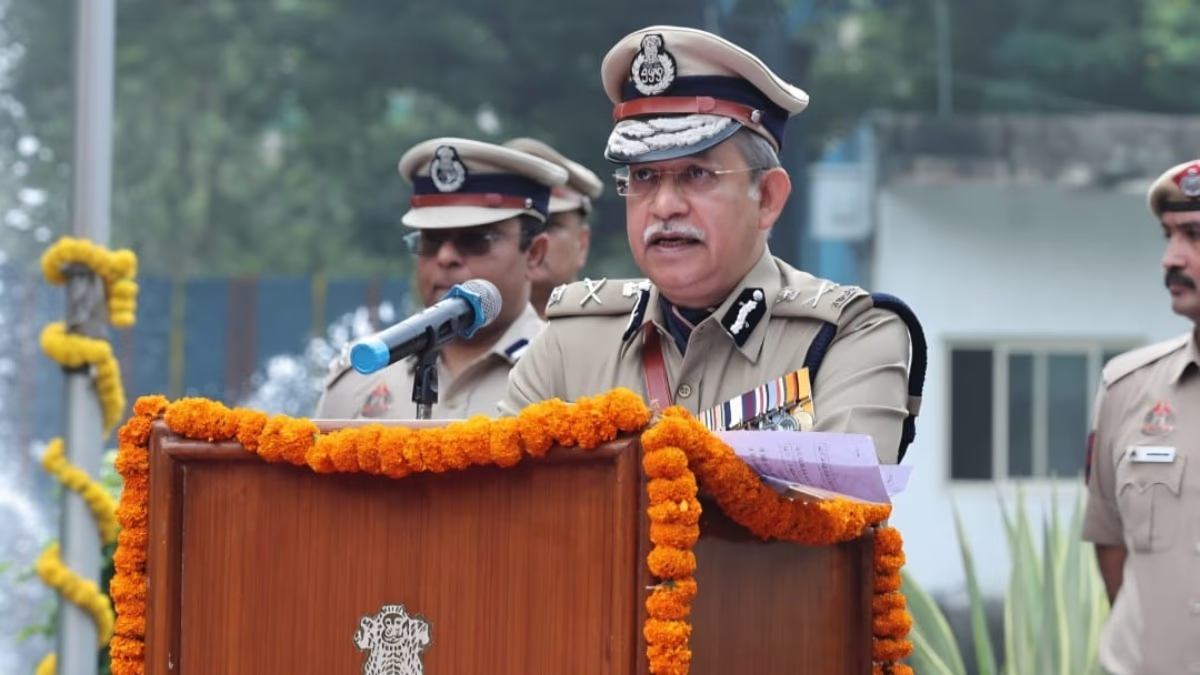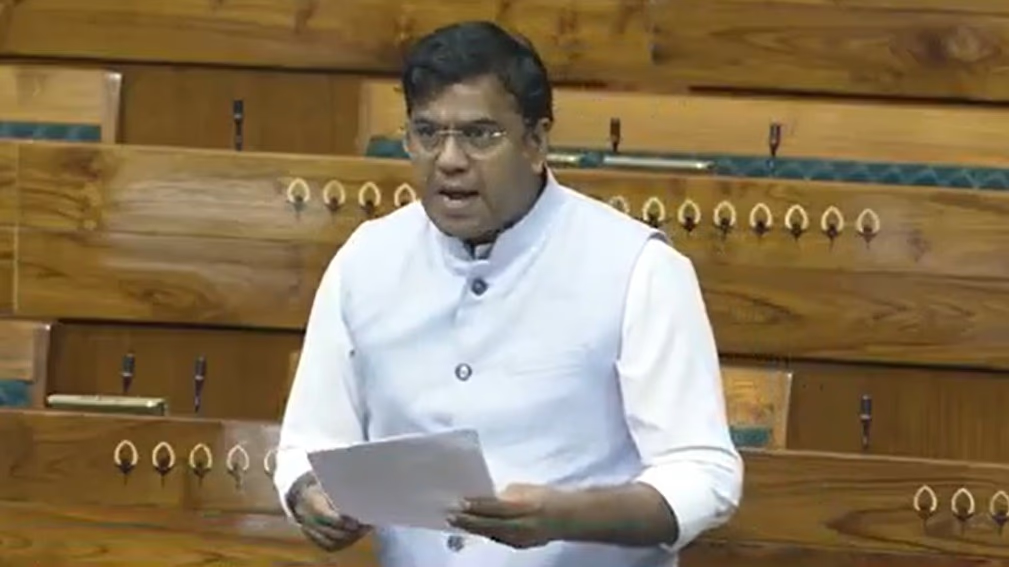About 140 kilometers north of Srinagar lies a valley called Gurez. The Kishanganga River flows through, which becomes Neelum in Pakistan. This area, once called Dardistan, lies near the Line of Control and has long been isolated due to its sensitive location and heavy snowfall. But times are changing; restrictions have eased, and global warming has weakened the snowy shield. Yet, the future of this ancient community is at risk as its echoes fade into history.
aajtak.in ventured to the farthest village near the LoC, Chakvali, in Northern Kashmir's Gurez Valley, spending a day with the Shina community.
Heading towards Bandipora District from Srinagar, the flat roads transform into winding mountain paths. The further you go, vehicles become scarce, replaced by shepherds and women returning with bundles of grass. At intervals, checkpoints ensure careful monitoring.
About six hours later, we reach Dawar, the headquarters of the Gurez sub-division. Here, plans for our journey forward are finalized, and military permissions acquired. The next morning, our journey resumes.
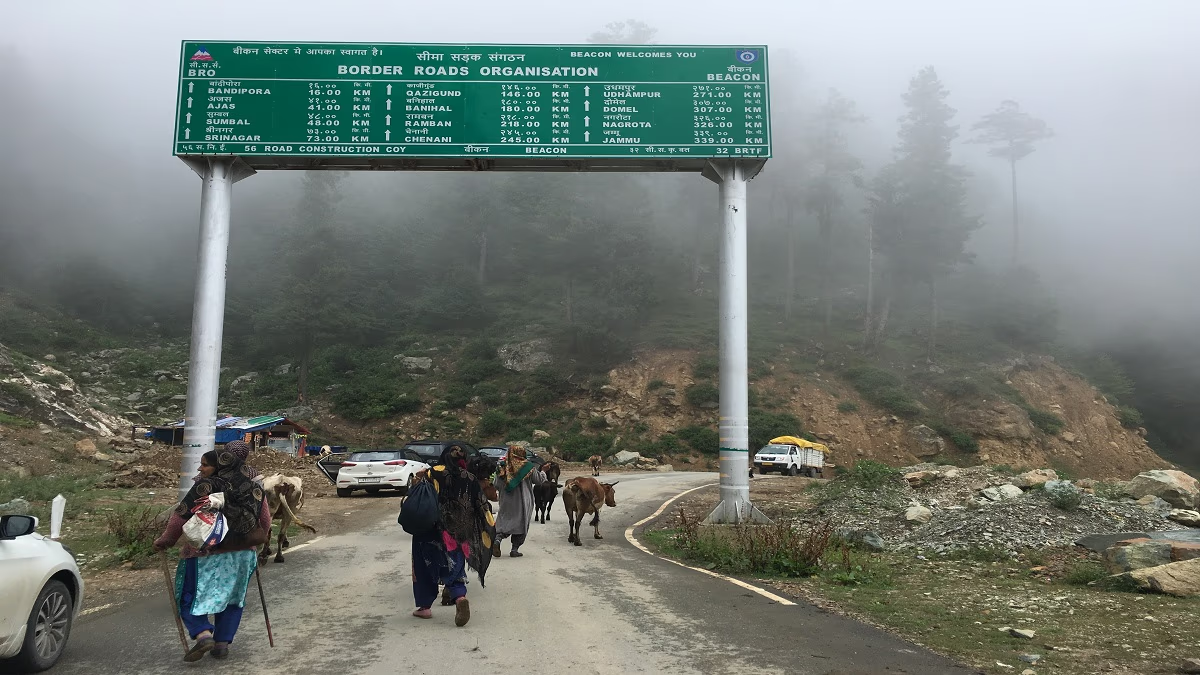
Source: aajtak
We descend into the Tulail Block within the Gurez Sub-division. The valley's population barely touches forty thousand. Scattered wooden houses shelter either the elderly or young couples unable to afford a life elsewhere. Most homes are two-storeyed, accommodating livestock below and families above.
'In winter, everything freezes. The sheep and goats provide warmth,' explains Ghulam Mohammed, donning a woolen overcoat made from sheep's wool. Ghulam is the eldest in the locality, around 105, as corroborated by the villagers. 'Born long before the partition, he remembers the tribal attacks vividly. He even put up some resistance,' they say.
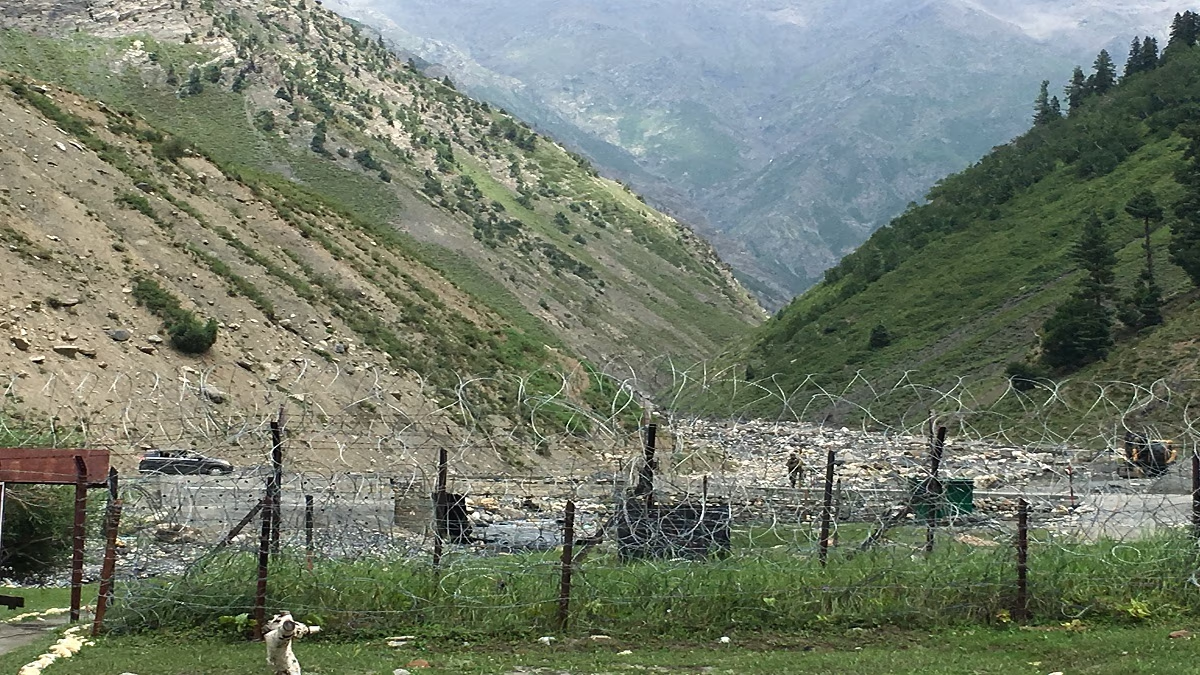
Source: aajtak
Even with valor, the valley's residents weren't prepared for the sudden assault. It was only after weeks of violence that the Indian army intervened. Since then, the Dard population and the army have collaborated for peace
— a partnership that remains visible.
From Ghulam's tales to soldiers casually seen in Gurez's alleys, the security feels palpable. A soldier accompanying us mentions, 'The valley is different from Kashmir. These are Gurezis, not Kashmiris. Any new face is immediately reported to nearby checkpoints. Despite being close to the LoC, no militants have emerged here, nor any infiltrations occurred.'
His voice echoes a sense of comforting security, nestled in the safest corner of the home.
With their help, we arrive at Ghulam Mohammed's open-doored house. After a short wait, he steps out, apologizing for the delay, explaining he was in prayer.
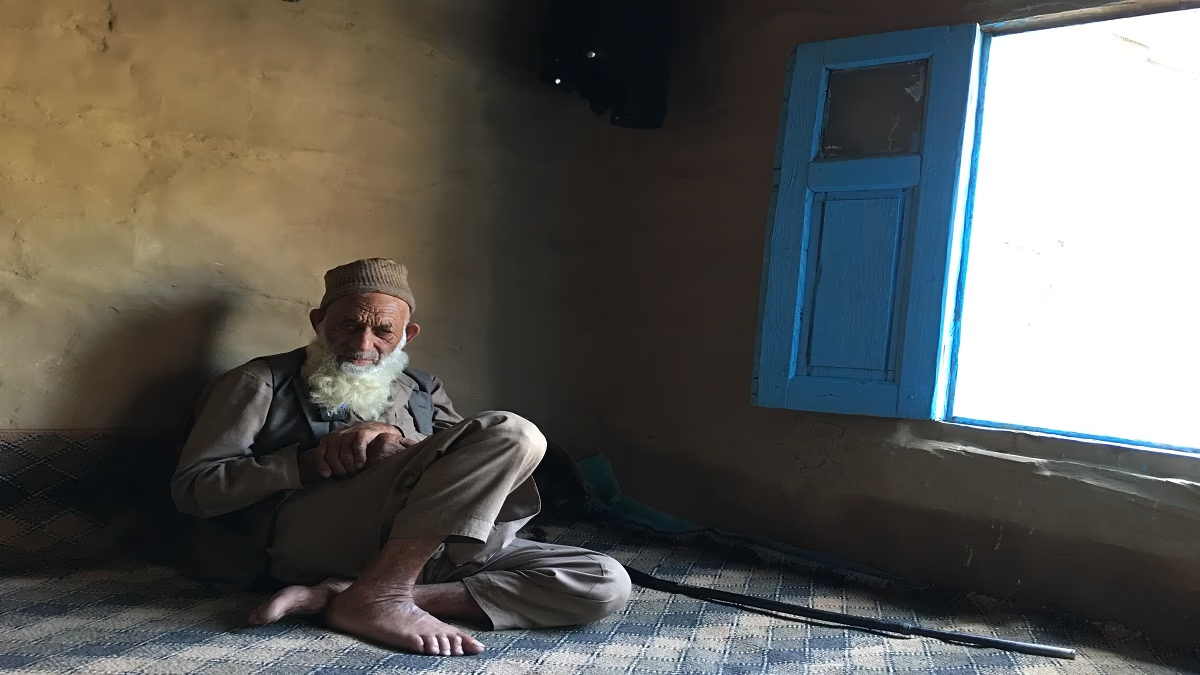
Source: aajtak
Speaking eloquent Urdu, Ghulam leads us to a sitting area with woolen rugs and cushions lining the edges. In a corner stands a locally known iron stove, the 'bukari', keeping the room warm.
Over a serving of nunchai (salt tea), we converse. Ghulam gestures to my mobile, commenting, 'These things (phones) bring trouble. Kids don't work; they're glued to them. Farming (agriculture) has been abandoned. Our time was better — we farmed and lived at home. Now, war looms larger day by day, and how much can governments really do!'
His narrative shows no glint of brighter days.
In clear Hindi, he expresses unease with the new generation, modern ways, and past governance.
Without clocks or radios in our time, days passed easily. Now, boys fret over mobile signals, seizing opportunities to settle in Kashmir.
But isn’t this part of Kashmir?
It is, but we are Gurezis. Our speech differs from that of Kashmiris. Snow doesn’t fall as much there. Many differences set us apart.
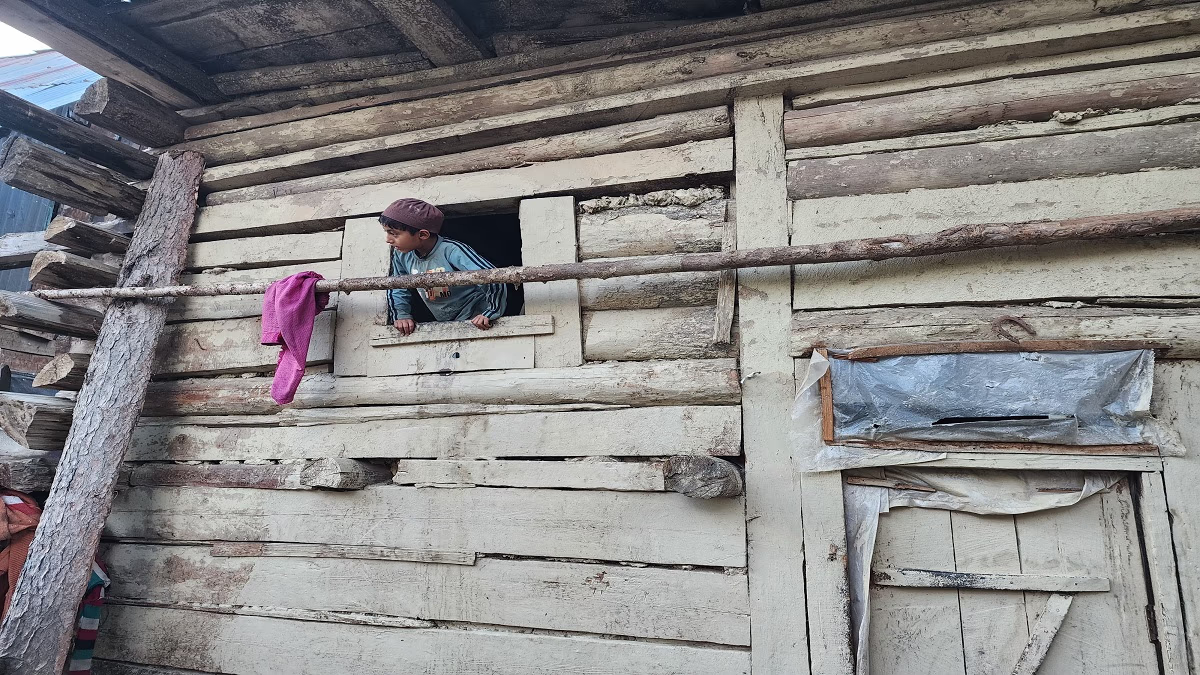
Source: aajtak
The Dard Shina tribe repeatedly emphasizes its distinct identity from Kashmir, whether from the elders or the younger generation.
This distance is rooted in experience. Despite being Kashmiri, Gurezis have found little space or respect in the country’s mainstream. While roads and small hospitals only recently began reaching their villages, when they relocate to Srinagar for livelihoods, they perceive the same cold indifference.
Running a shop from a small room in the village, a young man asserts, 'We have nothing to do with them. The warmer they live, the colder their hearts. In Srinagar, no one will ask after you. In Gurez, even if water is not available at a poor man’s home, he will offer food, borrowing from neighbors if needed.'
This sentiment proved true as almost every home offered us tea or meals during our journey from early morning to late afternoon.
We reached Chakvali, the last village near the LoC, as the afternoon was waning. Women mostly busy gathering grass or firewood for winters had left the houses mainly occupied by the elderly or new mothers.
A woman invited us to her kitchen, preparing chap shuro — a filled bread with meat, spices, and herbs cooked on either a tawa or tandoor. A pot of potatoes boiled on the adjacent stove.
She agreed to speak under anonymity, saying simply, 'If the husband sees my face, he will be angry. He is a bit short-tempered.'
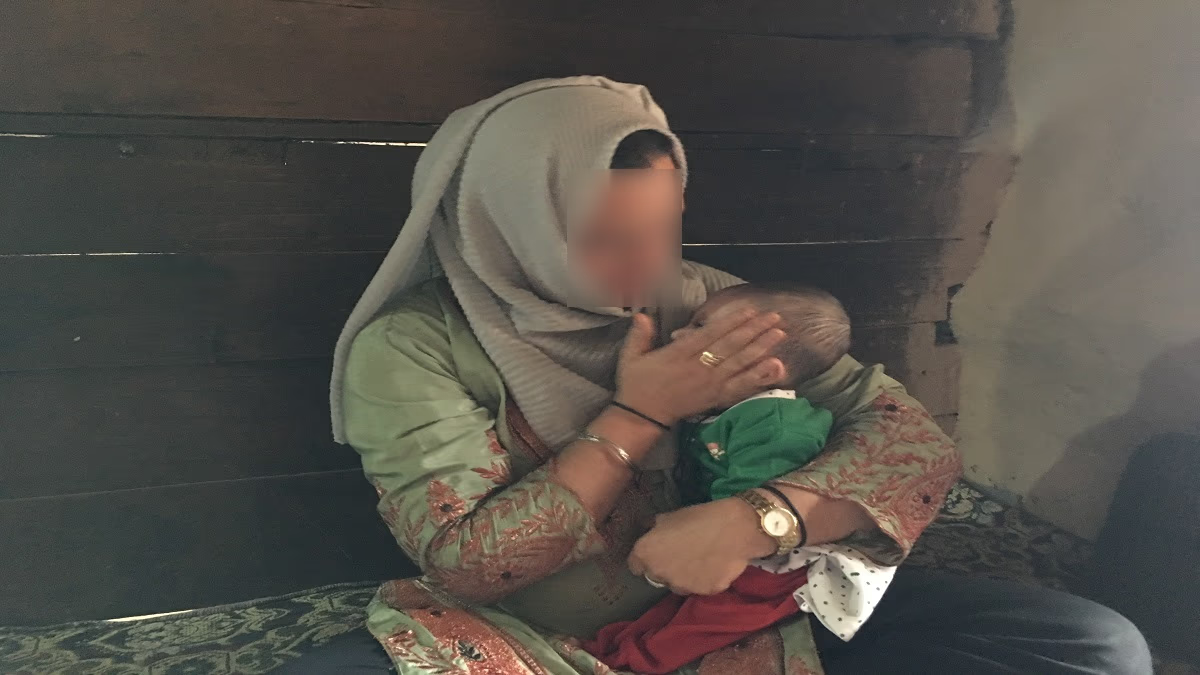
Source: aajtak
Shabnam, wearing a gleaming gold watch gifted from her family, rocks her three-month-old with one hand while cooking with the other.
Explaining her dish, she says, 'It’s common in every home. The meat, onion-garlic, and wild herbs-included paratha not only satisfies hunger but cures fevers and colds. The outer layer is crispy, while the mince inside melts in the mouth. Try it...'
When informed of my vegetarian preference, she laughs, saying, 'There's so much snow here that without eating meat, the cold would get us. Fresh meat is scarce in winters, so we sun-dry and preserve it beforehand.'
Inserting English words into conversations, educated yet discontent Shabnam longs for a world beyond the kitchen.
How long does meal preparation take?
Two hours or more per meal. Though our family isn’t large, kitchen work is divided. But winters see the whole day spent around the stove, heating water, lighting fires, making tea, keeping homes warm for children or elders.
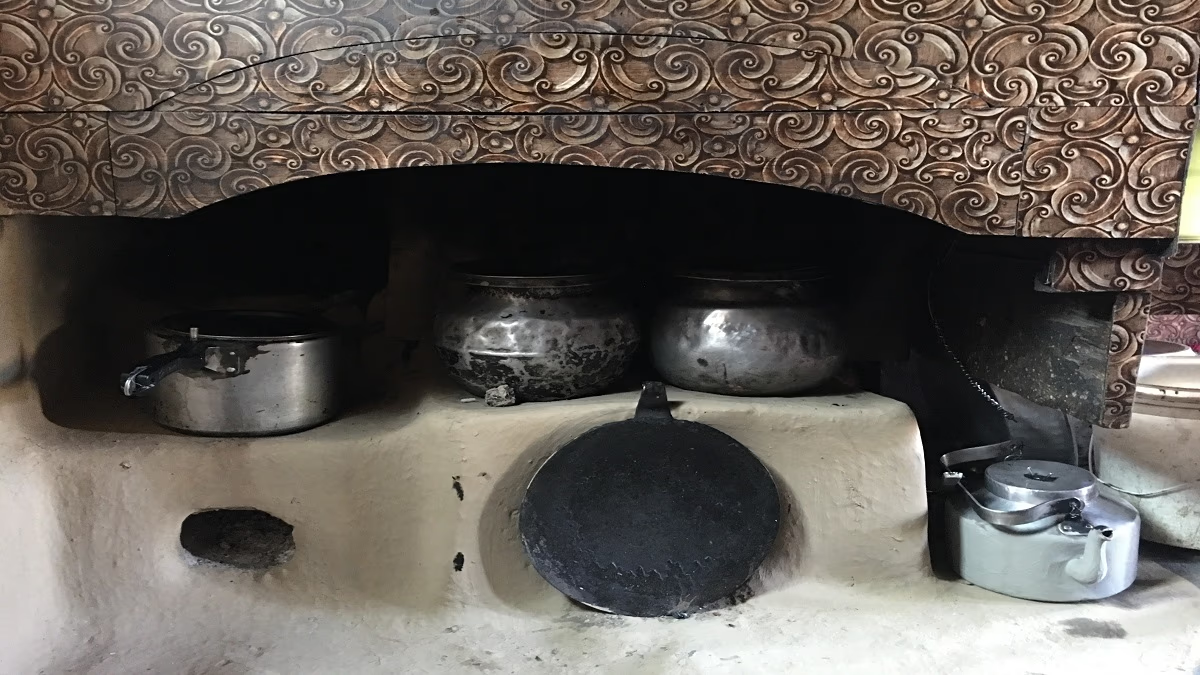
Source: aajtak
Gurez spends six months under thick snow each year, cutting off access completely. No one enters or exits once November to April's end sees temperatures plummet to minus 20 degrees Celsius. Rare are government-installed drinking water facilities, so spring water, often stored and melted, is consumed.
Moulding mud stoves, at times the Gurezi women become clay themselves, whispers the new mother quietly.
Nearby sits a brother-in-law, ensuring caution in her narrative. Upon asking for some privacy, he reluctantly steps aside.
Freed, Shabnam shares, 'During our marriage, I carried bundles of grass weighing 40-50 kg daily. When this (glancing at her baby) came along, the husband became irritable, given I was the only woman. If I sat idle due to pregnancy, who would handle the work?'
Why don’t the men shoulder such burdens?
They do engage in farming, but gathering grass and firewood falls to us women. For six months of winter, we can't go outdoors, so fuel must be stockpiled ahead of time.
Thus, every woman hauls 50 kg daily, walking miles, fetching water, cooking meals for six months. The remaining months, they bear the men's dominance indoors.
I don’t want this life. I’m persuading my husband to move to Srinagar, hoping Allah wills it! Her eyes linger beyond the windowless room, either in Srinagar or in the finished burden of grass-gathering women.
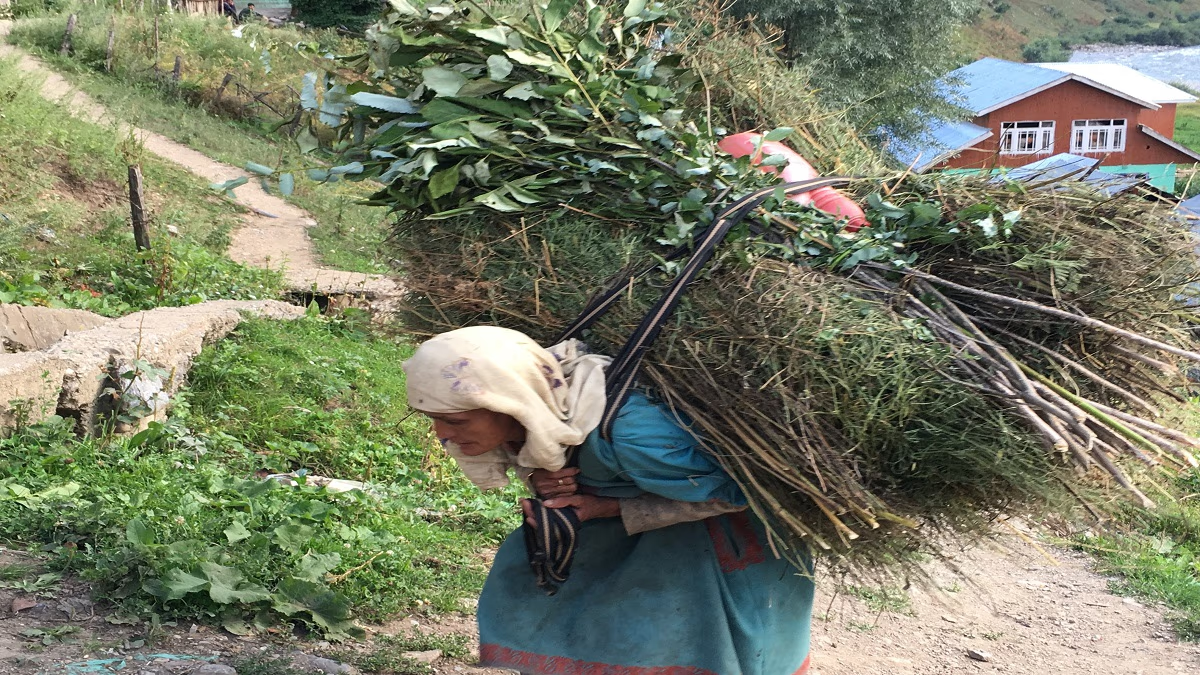
Source: aajtak
Continuing to the next village, a slight complaint arises, met by a prompt retort — “In past weddings, girls were judged by the weight of the bundles they could carry; those deemed weak saw weddings canceled. Now they grumble about carrying grass!”
Simplicity reigns among Gurzi men.
A sage advises, 'Cover your head with a scarf…' 'Must you roam alone, what compels you?' another inquires.
Whenever we venture outside the village, men’s following comments are inevitable.
Sign boards marking Ayushman Aarogya Mandirs, based on primary healthcare centers, have emerged across the valley, targeting family planning, maternity care, and minor ailments.
Mostly, these centers occupy spare rooms in households, offering an array of medications and a first aid kit, yet often lacking user knowledge, even among locals.
During lunch at a military base, the Ayushman Mandir is mentioned. A military official explains, 'We visit most villages monthly. Though PHCs have medication, understanding them is rare. Using Army Medical Officers, I've labeled medicines in many places.'
Gurez’s population of nearly forty thousand finds a small hospital at Dawar's headquarters. Significant issues prompt trips to Bandipura’s governmental and private facilities. As winter severs road access for six months, military helicopters assist when the weather permits. Failing which, the local youth increasingly seek life elsewhere.
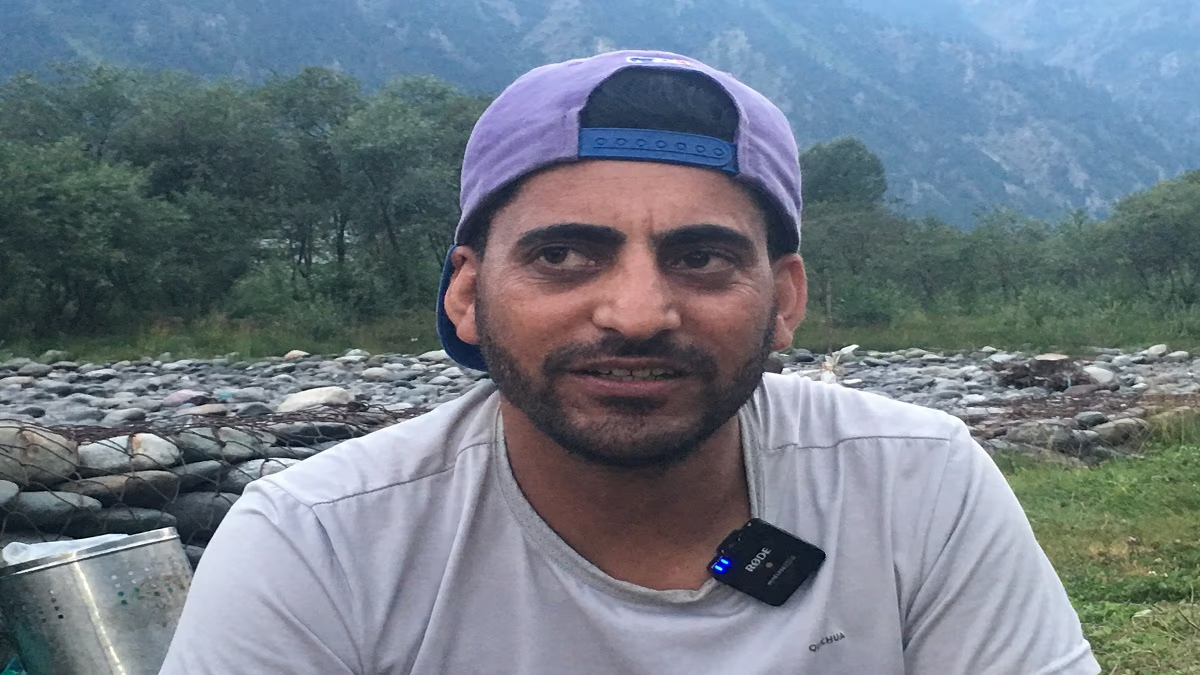
Source: aajtak
Ubaid, operating a resort in Dawar, remarks, 'We wish to preserve our culture and identity, yet many fears prevail. Shelling significantly drives youth migration. Numerous casualties visited from LoC shelling had us losing homes and shops. Post-Kargil, bombing intensified. With no shelters or bunkers, we dashed past the Kishanganga River. Ultimately, we took refuge in a concrete mosque, but it too offered limited safety.'
Later, small bunkers were constructed, enabling survival. Ubaid illustrates, leading us to a bunker by the hospital. Temporary partitions divide women and men; washroom space remains absent.
Ubaid mentions, 'The new bunkers possess enough for brief sustenance.'
Running a cultural club named after Habbah Khatun, a well-known poetess, Ubaid voices latent regret. Referring to pre-partition times, he says, 'Before, we belonged to Gilgit Baltistan. We could say the Gurzi language, lifestyle, and everything reflected that. After the divide, we neither belonged here nor there. Deprived of a proper system, we connected more with Bandipura and Kashmir.'
This created a cultural blend. We wore 'Pharans,' ate rice, and spoke Urdu, as they couldn’t grasp our language. Nonetheless, hints of hope endure. Whether the Gurez radio station airing all its programs in Dard Shina or individual efforts.
Bashir Ahmad embodies such an endeavor, his home transformed into a museum.
Housing over 450 items reflecting Shina culture, his collections span jute, woolen clothes, wild herbs, and copper jewelry.
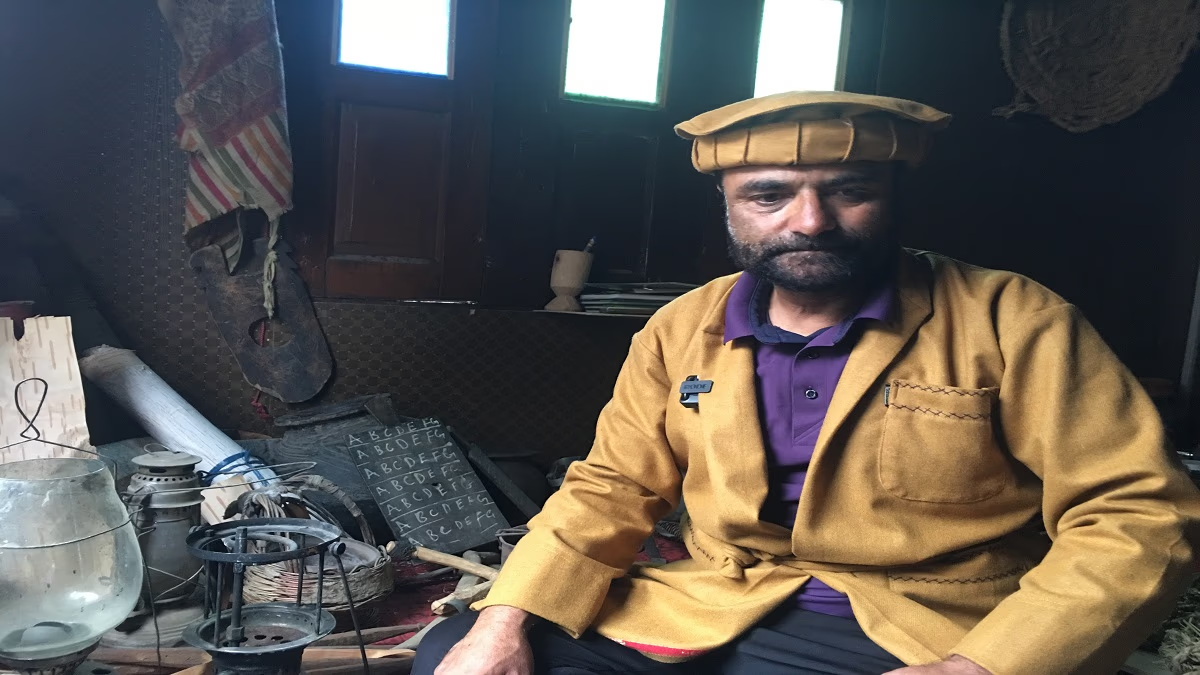
Source: aajtak
Bashir reflects, 'In 2019, talking to my mother, I realized I knew nothing about her life. Gradually, I roamed village to village, gathering old items, finding few made today matched their quality.'
Self-inspired, possessing diverse herbs from fever cures to remedies for stones and diabetes, he shares, 'Venturing in there now, I could retrieve ten herbs. Even now, if I fall ill, I use these, though the new generation neither has patience nor belief.'
Adjacent to Gurez’s Chakvali lies Angaikot village, where Abdullah Bat resides. He recounts, 'It was a time of love. We traveled on foot for days between Bandipura, discussing neither religion nor status. Everyone cared for each other's wellbeing. In winter, when traveling ceased, home became our nation. Women cooked; men sewed for all. Together, we sang and hummed in spare time.
